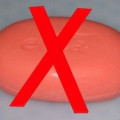- HubPages»
- Books, Literature, and Writing»
- Commercial & Creative Writing»
- Creative Writing
Mother's Best, a Short Story
Story by Tamara Wilhite
“Tell me, Ms. Martinez, what brought you into this business in the first place?” the New Wave Business Journal reporter asked.
Ms. Martinez, a lean but busty middle aged woman, adjusted her high quality suit that actually might have been bought from a consignment store her profile said she used. The prim and proper faux wool suit was offset by a white camisole that plunged a dangerously close to showing too much cleavage.
Then again, that was probably what she wanted, enticing the camera man to create a 3-D scan of them. It was, after all, her trademark and primary product. That it was salacious only improved the odds the image of her breasts and product name pin prominent displayed by the cleavage would be shared forever.
“I was at home with my second child and struggling with when and how to return to work. Childcare is so expensive for one child, so how could I afford daycare for two? I was looking into work from home options when I saw the listing.”
“For the clinic?” the reporter asked.
“So many work at home opportunities were total rip offs - before I founded Mother’s Best.”
“Was the ad what brought you into the business?”
“Not at first. I had no qualms of donating breast milk for premature babies who desperately needed it. I enjoyed breastfeeding, and my new baby was starting solids and getting teeth, so there was less demand for my output. When the leche clinic was offering a token payment of a few dollars for a day’s output, I jumped on it. I couldn’t live off the amount, but money was money. If it brought me a little breathing room, I thought that would be a wonderful way to make up the difference between fed and feeling full.” Ms. Martinez smiled broadly at the next 3-D scan, showing off a full set of perfect brilliantly white teeth, though the reporter had learned that they were recent transplants. That was the beauty of Obamacare – the Patient Protection and Affordable Care Act. Anyone with a need to know could access those types of records, and as a government licensed reporter, her access to such sleaze was guaranteed.
“What brought you to start your own firm?”
“A friend of mine had a premature baby. Breast is best, as the USDA reminds us in their public service announcements.” Another flash of those expensive, perfect, implanted teeth. “She was overwhelmed with bills and asked me to review them for her. That is when I saw how much the clinics were getting for the milk we were being paid to donate. Even after disease screening and processing, it was a huge profit margin. Obscene, even.”
“Then what did you do?”
“I told my friend that I would nurse her baby and she could pay me directly. It was cheaper for her and more money for me. A win-win situation. No, it was win-win-win since the baby got what she needed, too. And my own children won having their mother home for a few more weeks.”
“How did the authorities find out?”
“Oh, the clinic informed them that my friend had stopped using their services. Social services came out to find out if there was a paperwork change and she’d switched clinics or if she had started trying to feed the child on her own or, heaven forbid, changed over to formula. Of course, we all know, breast is best.” The reporter tried not to roll her eyes at the public service announcement phrase that had morphed into Ms. Martinez’ commercial catchphrase. It felt like a violation of public property rights. “My friend explained that her baby was getting the best milk, as she deserved, – but it was from a friend, not a clinic.”
“Were you arrested?”
“They came up with trumped up charges of illegal distribution of bodily fluids. It’s the same charge they use when someone sells urine to another to falsify a drug test. It was disgusting to even make the parallel. If a sister can breastfeed her sister’s child for free, why not one friend who is like a sister? And if the mother had to pay the hospital and clinic for the milk, what was wrong if I received the money directly? My lawyer fought the charges, and we won.”
“There were health violations, as well, were there not?”
“Those charges were immediately dropped. I was a registered milk donor, after all. I had proven I already met all health requirements. The only possible concern was that I might theoretically contract a disease and give it to the baby if I wasn’t continually screened and monitored.”
“Were you?”
“Of course. I had two young children. The state already monitors all mothers for that very reason. If I had custody of my children and had permission to nurse them, I already met all criteria to nurse someone else’s. Their biggest gripe was that someone had ended the exploitation of women. We took the profits away from the non-profits and gave the money where it belonged – to the mothers.”
“Did you start your business after you won your legal fight?”
“Oh, no. I started referring friends to each other before I won the fight. Everyone saw the benefits immediately. You know that 1 in 7 babies was a preemie then. I think the ratio today is 1 in 6. And the mothers’ cannot breastfeed so soon, yet their babies are in the greatest need of mother’s milk. As a registered donor, I knew other donors in the area and could immediately set up new mothers with established ones eager to help them. It is all a matter of mothers helping mothers, and knowing who and where they are.”
“Did you charge for your services then?”
“No. Not directly. I had to ask for money while I fought my court battles, and my friends helped me out. It was after I won and the financial settlement I won that I officially opened Mother’s Best offices and began the formal referral service.”

“Do you receive a commission for each referral?”
“No. We don’t do commissions. Commissions, like profits, are for corporations.”
“Then how do you make money?”
“We have administrative costs for screening donors for our clients, as well as all the administrative costs of the databases. We have to pay for our offices. There are medical costs of double checking everyone’s health at their regular screenings. Only the best mothers can donate to Mother’s Best.”
“So your salary is part of the administrative costs?” the reported asked.
“Certainly. I am the primary administrator.”
“There is no profit, then?”
“That is correct.” The statement was flat, well practiced with an attorney and voice coach to avoid violating any laws.
“Your administrative fees are higher than your administrative and medical costs. What do you do with excess money, then?” This was the question to make the interview top ratings.
“We advertise for mothers. We build new offices to recruit, improve facilities for our best mothers. We hire more staff as we expand. We can always plow excess money into pre-paying utilities, which are always going up, or building freezers –“
“Why would you need freezers? All your referrals provide fresh milk for the babies.”
“Mothers who pump can drop off their supplies with us. We can freeze for future use by the mother herself, given high energy prices and rationing under green energy policies. Or we sell it to hospitals for use by mothers who are too old or unhealthy to breast feed. For example, we donate milk for a modest fee to women with any HIV strain, Hepatitis C, D, and E to feed their children.”
“What is different about you selling milk to the hospitals than when the exploitative non-profits did so when you were donor?”
“Why, everything! When I was a donor, I went to their clinic and gave them the jug and they made those dollars. As the head of Mother’s Best, we have delivery staff that pick up the mothers’ milk on the women’s schedule. After processing and sale, the women receive proper compensation for their time and effort. We pay many high producers so much that they can afford to stay at home with their children. Our Mothers’ Best members are truly working at home – and benefiting the greater good, too.”
“Do you ever reject clients or donors?”
“Anyone who does not meet our stringent health requirements, of course. Our standards are stricter than the State’s. Mother’s Best mothers are the best,” another flash of those perfect milk white teeth. “And anyone who cannot pay promptly and properly as our providing mothers deserve shall be referred to the State facilities.”
“How concerned are you about outsourcing?” the reporter asked, her most pressing question finally asked.
“You know with Mother’s Best that only the best mothers donate breast milk. I don’t care what those companies say – for all you know, they’re selling you processed cow’s milk for our children in pretty bottles with a woman’s face on it. The healthy foods initiatives have nearly wiped out the beef and dairy industries, and how is your baby going to complain about the taste of cow’s milk versus vegan mother’s milk? And imports are insane. Women in third world countries are not and can never be as healthy as we are. Then there are all the risks of contamination and spoilage during transport. Never use imported. I wouldn’t give it to my cat, much less my kid.”
“Do you still breastfeed your children?” the reporter asked.
“Oh, no, my children are fully grown. I do still donate, though.”
The reporter grimaced at the thought but kept her tone light and airy. “Why?”
“Never ask others what you are not willing to do yourself. I lead by example.”
“What do you say to the accusations that your pricing schedule is unfair to poor women who would like to give their children breast milk but cannot afford your service?”
“We are providing a premium service.”
“What do you say to those who say you do not donate enough of your profits to true charities -?”
“We are non-profit.” Ms. Martinez glanced menacingly at the schedule on her PDA. “I don’t have time for this.”
“What do you say to those who say you excess profits plowed back into staff salary make you a millionaire?”
The personal digital assistant buzzed urgently. “I’m sorry, but it is time for my next lactation.” Ms. Martinez picked up her bag and strode off the stage. “Thank you for the interview.”
“We can talk while you pump,” the reporter replied. The camera man was trying not to look at the camisole and what it contained. He actually seemed squeamish at the idea of the guest pumping on camera, though breast feeding in public had been a woman’s right for years. “I have more questions.”
“I can’t have strange people of unknown health around me while I do it. It’s best for the mothers who will be receiving this batch tonight.”
For the children. That was always the inviolable excuse. The reporter could only mutely watch as Ms. Martinez, mother of the mother’s milk business, retreated to a private room. The lock clicked loudly behind her. Ms. Martinez knew how to milk the interviews – like everything else.






